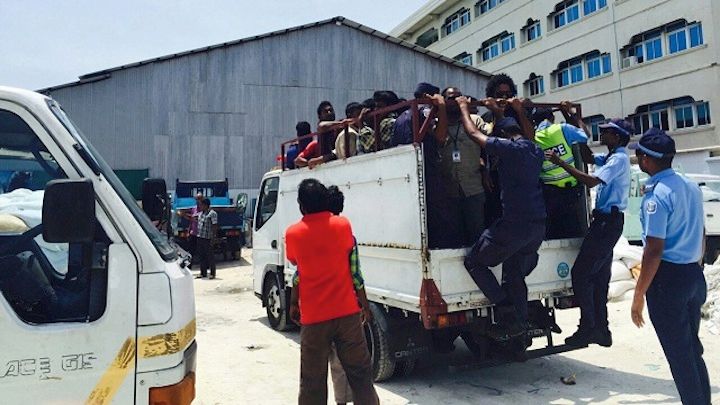Officials blame victims of human-trafficking for low conviction rates
Human-trafficking cases are stalled “because victims want to leave the country immediately or weren’t prepared to cooperate with investigators,” the police said.

28 Nov 2016, 09:00
The Maldivian authorities have blamed the country’s appallingly low rate of conviction for human trafficking on victims’ failure to cooperate with investigations.
Superintendent Abdulla Satheeh, who heads the police’s serious and organised crime department, told the press Sunday that human-trafficking cases are stalled “because victims want to leave the country immediately or weren’t prepared to cooperate with investigators.”
Only one case of human trafficking has been successfully been prosecuted in the Maldives so far.
On November 22, three Bangladeshi men were sentenced to ten years in jail for sex trafficking, under a new law criminalising human trafficking in 2013. No Maldivians have been prosecuted under the law yet.
Become a member
Get full access to our archive and personalise your experience.
Already a member?
Discussion
No comments yet. Be the first to share your thoughts!
No comments yet. Be the first to join the conversation!
Join the Conversation
Sign in to share your thoughts under an alias and take part in the discussion. Independent journalism thrives on open, respectful debate — your voice matters.




